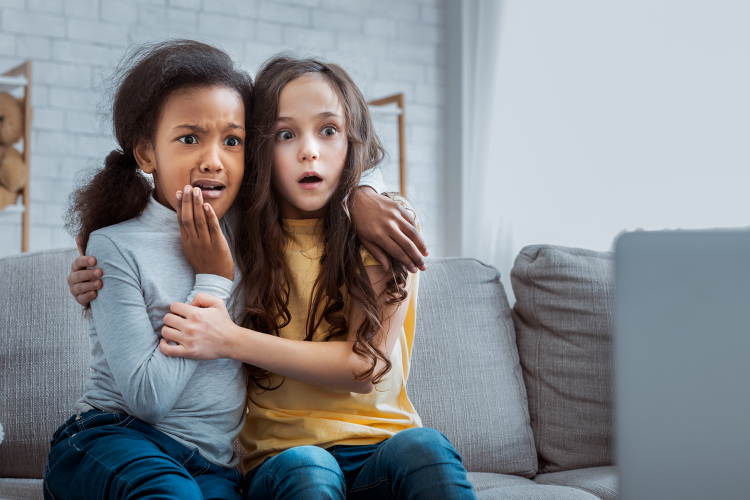Is it OK to watch the “It Gets Better” videos with kids?
Is it OK to watch the “It Gets Better” videos with kids? https://mediatrics.com/wp-content/themes/corpus/images/empty/thumbnail.jpg 150 150 Mediatrics Mediatrics https://mediatrics.com/wp-content/themes/corpus/images/empty/thumbnail.jpg Q: A friend of mine told me she watched Fort Worth City Councilman Joel Burns’ “It Gets Better” video with her kids, ages 14, 11 and 8. (If you’ve not seen it, the video includes photos of gay, lesbian, and bisexual teens who recently committed suicide after being victims of bullying. Then the Councilman recounts his own bullying and near-suicide before ending with a positive message of hope for GLBT youth.)
I have no doubt that a video like this is a powerful thing to watch as a family, but I was concerned that the discussion of the suicides of very young children might be inappropriate for my own child and might be better handled in a discussion. So that is what I chose to do with my son; I didn’t think he needed to see the smiling faces of myriad boys who had hanged themselves or shot themselves. What do you think about this media being used as a teaching tool in this situation?
-Too Sad to View, Pawtucket, RI
A: The It Gets Better series is very good and should be commended for what it is: A well-intentioned initiative by adults about an important matter that needs to be addressed in a very public forum. The issue here, though, is that the brain development of child viewers is not yet as complete as that of the grown-ups producing these videos or that of adolescents and young adults who have been inspired to create their own video responses. Similarly, the different levels of brain development and life experience among your friend’s children result in different abilities to comprehend and understand this video: The 14 year old is likely able to understand the graphic message, as might the 11 year old, but neither has the library of human experience to feel its full importance. The 8 year old is too young to make sense of its powerful images and language and will likely be only scared by them.
You don’t mention your own child’s age, but I agree with your strategy of having a discussion, rather than letting him watch the video. This lets your child formulate the meaning of this issue in his own mind, rather than having the powerful visceral experience of watching the video shape and inform his thinking. You have the opportunity to read his responses to the information he is receiving and to offer him only what he can handle, in ways that are helpful to him. Perhaps he understands bullying, but not sexual identity, so you can guide the discussion in directions that help him learn. Without your monitoring and responding to his reactions, simply watching the video may just confuse or even amuse your child, because he may focus on something to which he can relate, such as a grown man crying in a formal public setting.
For youth who are struggling with understanding and defining their sexuality, there are great resources and understanding available to them through The Trevor Project. For many families, however, bullying—not sexual identity—are at the heart of the discussion. Children can be stigmatized by for many reasons and kids of any age can understand and learn to recognize shunning, harassing, or hurtful behavior. Use your discussions as an opportunity to discuss how to be a good citizen, to understand that if anyone is a victim, then everyone in your child’s school and community are victims. Empower your child to be someone who stands up for those being hurt: An upstander, rather than a bystander. Reinforce your child’s natural human empathy not just for victims, but also for the bullies, because they are, in most cases, troubled and hurt themselves. (See related Q&A all about bullying on- and offline.)
Finally, if you have had this conversation with your child and believe he can benefit from the It Gets Better video that you have now placed in a powerful context, then watch it together. Your sharing and discussing this video and how it makes him think and feel is key: By co-viewing and mediating this sensitive material with your child, you’re demonstrating your commitment to his healthy and happy development in a sometimes scary and cruel world.
Enjoy your media and use them wisely,
The Mediatrician®



